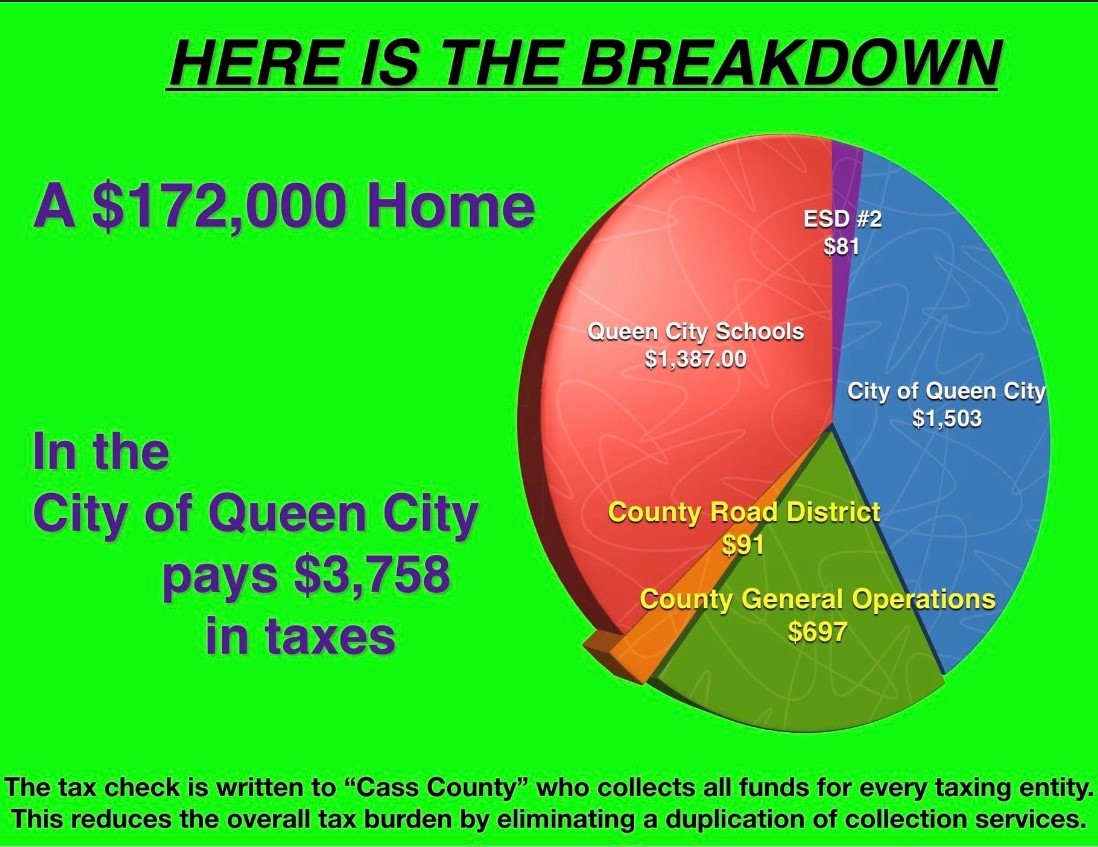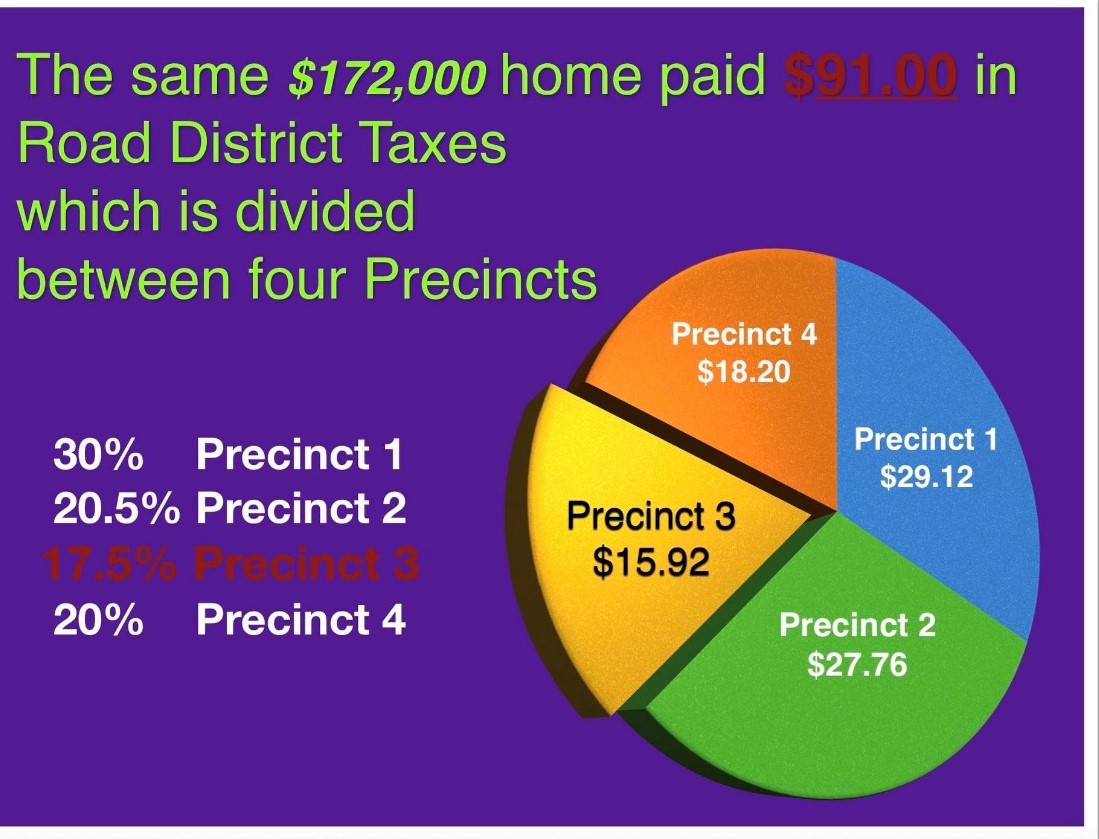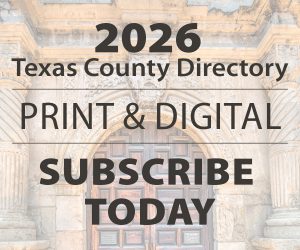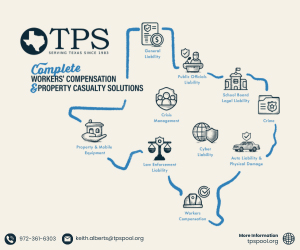To those who work within the courthouse walls, the importance of county government is categorical. Yet time and again we are faced with the reality that to some, county government is a vague concept.
The plight begs the question: How are our constituents supposed to learn about counties? What teaching tools are in place? County government is certainly not among the average school curriculum, nor is it a regularly advertised service. More than likely, it’s “learn as you go” as circumstances lead the constituent to the county: Where do I go to apply for a marriage license? How do I register to vote?
Many officials have accepted that the task falls to them. While seemingly vast – so much to share with so many people (and so much work to do in the meantime) – it all depends on the approach. An uphill task to tackle? An opportunity to enlighten? Perhaps it is a combination with each official drawing on individual strengths and talents.
Cass County Commissioner Paul Cothren describes himself as a visual learner.
“One thing I enjoy doing with financial data is creating visual aids to help educate people on the impact of their money, in this case their tax dollars,” shared Cothren, who created pie charts as a way to explain how county road district funds are collected, distributed, and utilized. He showed the illustrations to a constituent who suggested that Cothren “get this information out to the public because they don’t know what you are up against.” Cothren made a social media post on Facebook saying he was “happy to share the facts about our county road district taxes and why the road repair need is so great.” He also offered to create a personalized road tax contribution for any property owner.
“I have carefully embraced the common social media platform of Facebook,” Cothren explained. “It is a well-established place to share meaningful information with my constituents in Precinct Three.”
When inclement weather approaches that may cause flooding or other dangerous conditions, Cothren shares live updates in near real time.
“At other times we create and share videos that feature the scope of damage caused by a storm,” he said. “We notify the public about culvert installations, road closures, major improvements, and voting box locations as well as times and dates.”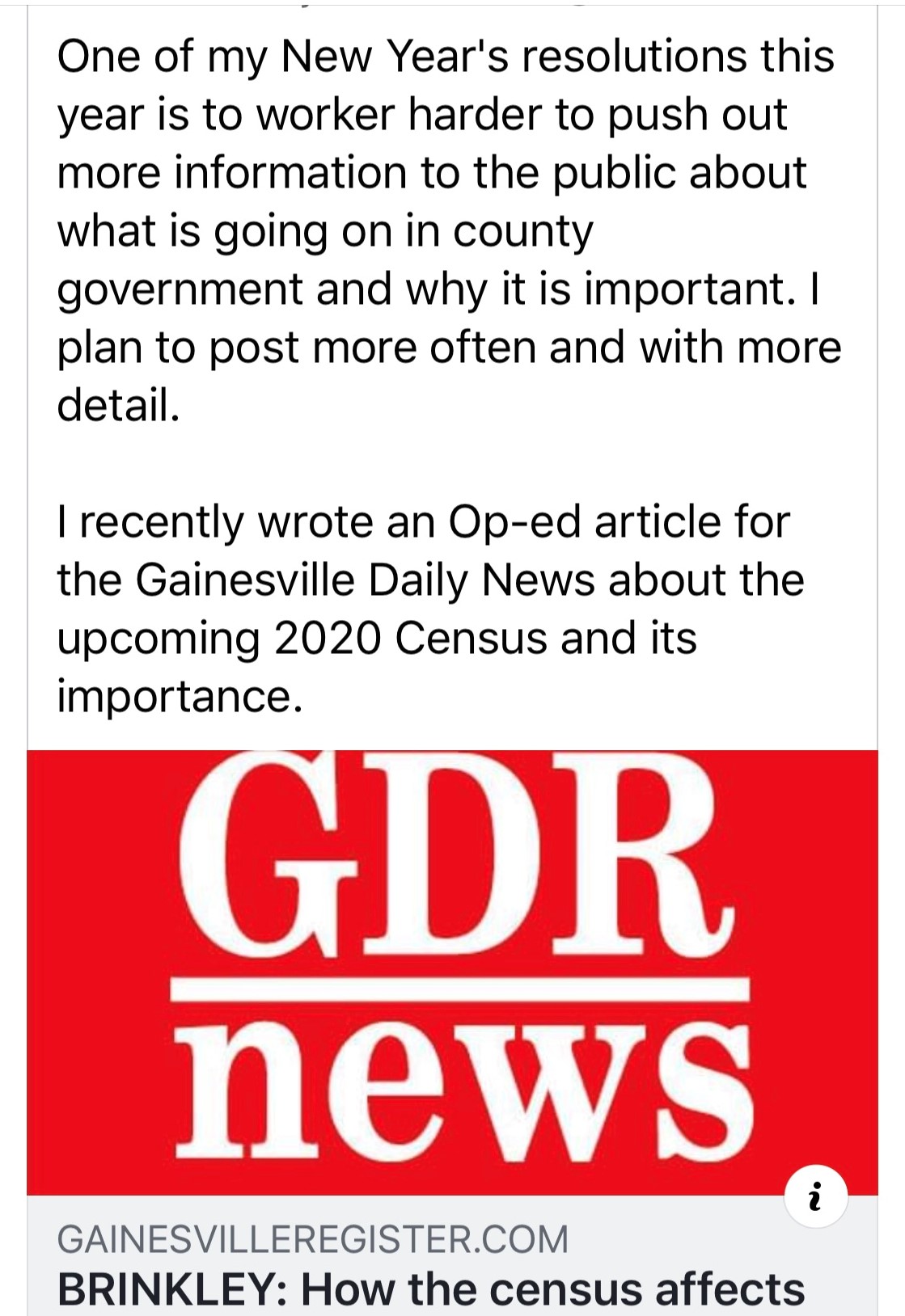
Cooke County Judge Jason Brinkley also uses social media to keep his constituents informed. In fact, Brinkley renewed his resolve in a Facebook post.
“Everyone consumes information in different ways,” Brinkley observed. “With such a wide variety of different mediums for communication, I think it is important to communicate with our constituents in as many different ways as possible. My primary method of communication is social media, and ideally I try to post information weekly. It allows for direct communication with our constituents, and I can be sure to get my own message across.”
Brinkley periodically uses local print media to help give more in-depth information and perspective behind certain decisions or regarding certain topics. Cooke County also has a local radio station, and a few times a year Brinkley meets with the morning host to do a short radio segment to update listeners about what is going on in the county. Brinkley also addresses civic groups and service organizations from time to time.
“Most people are busy with their own day-to-day lives, and the thought of local government generally does not cross their minds unless it is a major controversial issue or if it is election time,” Brinkley noted. “However, I think it is important to continually try to inform our constituents about what is going on in local government and how their tax dollars are being spent. They need to know that their local officials and public employees are working hard every day on issues that directly and indirectly do have an impact on their lives and our communities.”
In January, Brinkley wrote a guest column for the Gainesville Daily News: “BRINKLEY: How the census affects you.”
“A complete and accurate count is needed to help ensure that everyone has as equal representation as possible,” Brinkley wrote. “A complete count in Cooke County is vital to making sure your voices get heard by our local, state and federal officials.”
In May 2019, The Gainesville Daily Register (GDR) launched a series of columns, Direct From Your Leaders, to provide space for more in-depth discussion of topics impacting local taxing entities, explained Sarah Einselen, editor and general manager.
“We’re a small newsroom – one reporter, one sports editor and me – so we don’t often have the bandwidth to delve into topics like census participation at length,” Einselen offered. “Resource limitations are widespread in local media, probably to a greater extent than officials realize. We had to be creative in getting information out to readers, and this column series was one way we thought could help.”
For the series, the GDR invited the mayor, the school superintendent, the local community college chancellor, and the hospital president to participate; the hospital is partly supported by a special taxing district.
“They’ve written about things like how the college is supporting first-generation students or others with barriers to graduation; how the hospital plays a part in economic growth; and how the school district is working with a new Parent Advisory Committee on long-term plans,” Einselen detailed. “We’ve received good feedback from readers, so we’re continuing the series for 2020 and have added county government as a fifth participating entity.”
Webb County Judge Tano E. Tijerina relies on communication officer Marah Mendez to help keep the media, and thereby constituents, informed on county matters. In fact, on Jan. 9 a press release was dispersed related to the topic at hand: communicating with constituents, in this instance via the classroom.
 Students at Martin High School were in for a surprise on Jan. 8 when they walked into their government class and found Tijerina as their government teacher for the day.
Students at Martin High School were in for a surprise on Jan. 8 when they walked into their government class and found Tijerina as their government teacher for the day.
Focusing on the role of local government, Tijerina gave students an insight into the workings of Webb County. Topics included the functions of different departments, various revenue sources, and fiscal responsibilities.
“I wanted to enhance the students’ knowledge of what their county does for them and explain to them that local government is just as important as state and federal government,” Tijerina shared. He also highlighted the differences between the city and county.
Students had the opportunity to inquire on an array of topics. Questions ranged from future projects in Webb County to the border wall and taxes.
“This is my goal,” Tijerina said, “for the students to take interest in their county.”
Educational Resource
Throughout the last several years, County Progress has published a variety of articles designed to help you educate your constituents. Examples include What You Wish Your Constituents Knew About County Government, the County Budget, and the Property Tax; County Roads 101; and our County Focus series offering descriptions of the varied offices that make up county government. If you are interested in these articles or other resources, contact Julie Anderson, editor, at janderson@zacpubs.com.
By Julie Anderson
Editor







